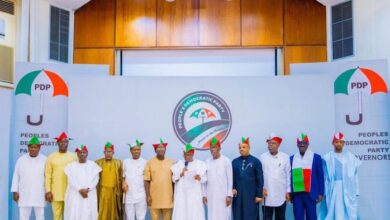Telecom Sector Set For Overhaul: NCC Unveils Consumer-Centric Tariff Reforms

The Nigerian Communications Commission (NCC) has outlined new reforms aimed at making telecom tariffs more transparent, intending to address longstanding concerns among Nigerian consumers about data usage and billing clarity. The Executive Vice Chairman and CEO of the NCC, Dr. Aminu Maida, introduced these initiatives during the 93rd Telecoms Consumer Parliament in Abuja, emphasizing the Commission’s dedication to protecting consumers in an increasingly digital society.
One of the core aspects of these reforms is to mandate that telecom operators present clear, easily accessible information regarding their services, including tariff plans, billing rates, and associated terms and conditions. This initiative reflects the NCC’s broader response to rising complaints from Nigerian consumers about unexpected data depletion and complex billing. Dr. Maida highlighted that this move is part of the NCC’s continued efforts to simplify telecom tariffs, enabling users to make informed decisions about their data usage and to avoid confusion over hidden charges or vague terms.
These changes come at a time when Nigeria’s digital engagement is rapidly growing. DataReportal shows that with over 132 million internet connections, Nigerians are heavily immersed in the digital world, spending an average of 4 hours and 20 minutes daily on social media—well above the global average. In 2024 alone, Nigeria’s data usage surged by 39 percent from the previous year, averaging 336 gigabytes per second. This high rate of data consumption has brought attention to issues surrounding data depletion, with many users feeling their data drains faster than expected.
To further simplify tariff structures, the NCC has implemented a Guidance on Tariff Simplification. This directive compels telecom providers to make their data plans and pricing more understandable, fostering a consumer-friendly approach to billing and transparency. Earlier in the year, after receiving numerous consumer complaints related to data depletion, the NCC instructed Mobile Network Operators (MNOs) and Internet Service Providers (ISPs) to audit their billing systems. These audits revealed no major discrepancies, but consumer sentiments remained a priority for the NCC.
Looking forward, the NCC aims to build a telecom ecosystem where Nigerians feel informed and in control of their digital interactions. By increasing clarity and accessibility of information about tariffs, the reforms are expected to enhance consumer confidence and create fairer billing practices. Dr. Maida emphasized that through these efforts, the NCC seeks to strengthen the relationship between consumers and operators, building a telecom industry that respects user experience as central to its growth.



